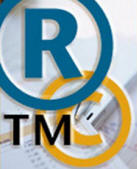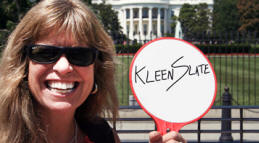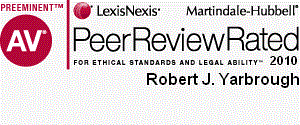Newsletter Issue 17 - July, 2010
In this issue:
Jurisdiction in the Internet World
Grammar of Copyrights and Trademarks
Inventor's Eye - PTO publication
Copyright and public performance of a movie
Legal Jurisdiction in an Internet World without Borders
One of the illusory advantages of conducting business offshore (in a location outside of the United States) is to protect the business from the reach of the U.S. judicial and alternative dispute resolution systems. Contrary to belief, if you operate an offshore website that attracts U.S. visitors through, for example, online sales of products or services, you are not sheltered from the long arm of the United States courts.
Recent court cases have determined that U.S. courts can claim jurisdiction over a web site regardless of the geographical location of the registrant and even the domain name registrar. In Atlas Copco v. Atlascopcoiran.com, for example, a trademark holder sued various domain names under the Anticybersquatting Consumer Protection Act of 1999. Although the defendant domain name owners appeared to be located outside of the United States, the court held that it had jurisdiction over the property, that is, the domain names themselves, because the registry, VeriSign, was located in Virginia. VeriSign incidentally controls all <.com> and <.net> domain names. The court's jurisdiction over property is referred to as in rem jurisdiction as opposed to in personam jurisdiction, which is jurisdiction over the person or individual. The court issued a judgment and ordered transfer of the domain names.
In Com. ex rel. Brown v. Interactive Media Entertainment and Gaming Association, Inc., the state of Kentucky filed an action to seize 141 domain names being used for gambling sites, an illegal activity in Kentucky. Although most of the sites were located offshore and served gamblers both inside and outside of Kentucky, the state court ordered a forfeiture hearing. The domain name representatives appealed to the Supreme Court of Kentucky where they lost for lack of standing. Although the status of the domain names is uncertain, the case demonstrates how the lower courts will exercise in rem jurisdiction over domain names and seize them if their owners are violating state laws.
Thus, while moving your domain name offshore may protect the
registrant from personal jurisdiction, it will not prevent the
courts from exercising in rem jurisdiction over the domain names
itself. It is clear that the long arm of the law can reach across
oceans.
Deborah Logan
The Good Grammar of Copyrights and Trademarks
In the world of intellectual property, the precise use of language is important, whether preparing a copyright, trademark, or patent application, drafting an assignment or license agreement, or in oral communication. In a short article on the subject, Daniel Kegan, wrote in the newsletter of the Illinois State Bar Association, "Many people, journalists, and judges use language loosely, contributing confusion rather than precise precedent and clear communication. Prominent are the malapropisms of intellectual property: confusion among patent, trademark, and copyright; confusion between the intellectual property right and a government registration." Kegan then makes the following simple point: "Copyright is a noun, trademark is an adjective." Here's what he means.
Copyright under the United States Copyright Act automatically exists in "original works of authorship fixed in any tangible medium of expression" (§ 102). Hence, registration is not a prerequisite to copyright protection. A copyright owner may apply to register a copyright and received the attendant benefits but he or she does not "copyright" an original work; that happens automatically. Copyright consists of a bundle of rights and the Copyright Act itself defines a "Copyright Owner" as the owner of "particular right." (§ 101). In this sense "copyright" is a noun, used to identify a right of ownership; it is not a verb.
A trademark, on the other hand, is not a noun but an adjective, modifying a noun or a pronoun. Trademark rights in the United States are obtained by public use of a word, phrase, design, sound, or smell to uniquely identify the source of a good or service. 15 USC §§1114, 1125 (Lanham Act §§ 32, 43). Trademark owners may register their trademarks with the United States Patent and Trademark Office or a similar state office, or both. Trademark usage should conform to a set of rules and this is where good grammar is a must. One should use a trademark as a brand name in combination with the common or generic name for a specific product. For example, COKE beverage, IPOD music player, or WINDOWS operating system. Why is this important? Well, begin using your trademark as a verb (e.g., to XEROX) or a noun (e.g., YO-YO) and over time the public may do the same. The brand then begins to identify not the source of the good or service but, generically, the good or service itself. Generic terms cannot act as trademarks. CELLOPHANE and ESCALATOR are two examples of trademarks, which have become genericized and no longer act as trademarks. The International Trademark Association has a set of rules for trademark usage:
• NEVER use a trademark as a noun. Use the trademark only as a brand name
in combination with the common or generic name for a specific product. Always
use a trademark as an adjective modifying a noun (e.g., "Xerox copier" where "Xerox"
is the brand name and "copier" is the generic product name).
• NEVER modify a trademark to the plural form. Instead, change the generic word from singular
to plural (e.g., a "Xerox copy", not a "Xerox").
• NEVER modify a trademark from its possessive form, or make a trademark possessive.
Always use it the form it has been registered in (e.g., not "Xerox's copiers').
• NEVER use a trademark as a verb. Trademarks are products or services, never actions
(e.g., not "to Xerox").
In his article, Kegan makes the point that informal usage of trademarks is relatively harmless
so long as the public is aware that the COKE they order, or the XEROX they make are registered
trademarks. Public awareness, however, starts with the trademark owner who should enforce and
reinforce correct grammatical usage. Make sure to use the product's generic name with the
trademark; make the trademark stand out from surrounding text so consumers may easily
distinguish between trademark terms and generic product names or descriptive text
in product labels or in advertising; use a trademark notice; and avoid using variations
of a mark; otherwise, the consuming public may believe improper usage is okay. For
more information, we recommend visiting The International Trademark Association web
site, which provides many examples of proper and improper trademark usage.
Adam Garson
"Inventors Eye" Presents Inventor-Friendly Information from the PTO
The USPTO has launched "Inventors Eye," a bimonthly on-line publication
for independent inventors. Here is a link to the most recent edition.
"Inventors Eye" leans toward encouragement, anecdotes and success stories,
but includes valuable information in a non-technical style. We recommend
that you check it out.
Robert Yarbrough
 Ask
Dr. Copyright...
Ask
Dr. Copyright...
Dear Dr. ©:
My church wants to host a movie night for the kids, where we show a Disney
film, serve popcorn, and promote fellowship among the parents. One of the
parents has a DVD copy of the movie, and we own a projector and screen.
Everybody says not to worry about copyright. If we show the movie without
charging anything, are we OK, legally speaking???
Doubting Thom
Dear Thom:
You are right to worry, since what you're planning could get your church in
some hot water, not to mention brimstone. Under copyright law, movies that
are not in the public domain (and very few are) can only be shown at a home to
family and friends, without charge. Whether or not your church charges for
admission, your "movie night" will be considered a "public performance" of
the film. If you look at the legal fine print on the DVD case, you'll see
that simply buying a copy of the movie does not give you the right to publicly
perform it.
Fortunately, there is an easy solution: just point your browser at http://www.cvli.com. That organization exists specifically to provide low-cost licenses to places of worship, schools, camps, and daycare providers so that movies may legally be shown. The cost depends on the size of your congregation, and ranges fro $60 to about $650 per year. You can apply on-line.
For other kinds of establishments, there are other licensing organizations, each with its
own list of participating studios and producers, and its own pricing scheme. Just search
on the internet for "movie copyright license" and you're sure to find them. If you have
other questions, be sure to ask an attorney at LW&H.
Lawrence Husick

